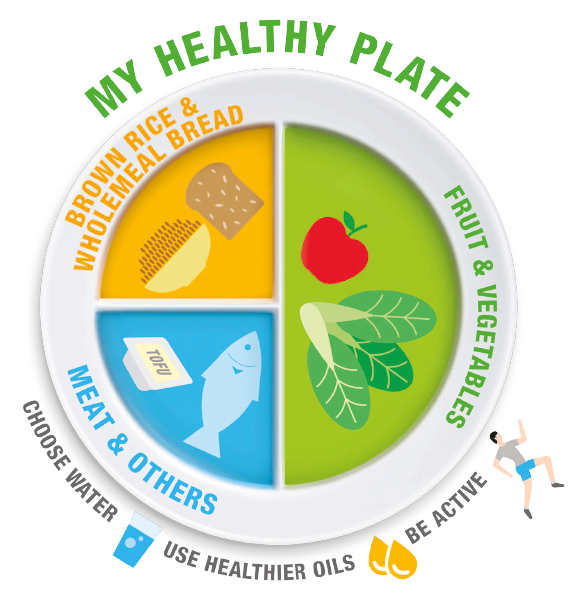Blog
Diet and Dementia:
What People with Dementia Need to Know

As we age, our dietary requirements change, and this is especially true for those living with dementia. It is important to ensure that our loved ones with dementia are receiving the necessary nutrients to maintain their physical and cognitive health. In this article, we will discuss the diet and dementia recommendations that may boost brain health and manage challenging dementia behaviours.
Diet and Dementia: How to Keep the Brain Healthy
One of the most important things to keep in mind when it comes to the diet of someone living with dementia is to maintain a well-balanced diet. A well-balanced diet consists of a variety of fruits, vegetables, whole grains, lean protein, and healthy fats. This will ensure that the individual is receiving all the necessary nutrients for their overall health. The following information in this section applies to people with dementia who do not have malnutrition or loss of appetite. iKare also has a blog post on healthy eating for elderly, check it out here.
If you are experiencing loss of appetite or weight loss, it may not be advised to restrict things like sugar or sodium. Speak to your dietitian to check what will work for you.

Eat Healthy Fats
Reduce the intake of foods that are high in saturated fat and cholesterol, as not all types of fat are beneficial for health. It is advisable to avoid unhealthy fats like butter, lard, solid shortening, and fatty meats, which are detrimental to heart health, and instead choose healthier options like olive, peanut or soybean oil, avocados or nuts.
Reduce refined carbohydrates and sugar
Lower your consumption of refined sugars, which are commonly found in processed foods, as they provide calories without essential nutrients such as vitamins, minerals, and fiber. It is better to satisfy your cravings for sweetness with alternatives like fruit or baked goods sweetened with applesauce or natural low-calorie sweeteners like monkfruit. However, it’s worth noting that in the advanced stages of Alzheimer’s, adding sugar to food might encourage eating if appetite loss is a concern.
Cut down on salt
Reduce the intake of high-sodium foods and use less salt or salty seasonings like soy sauce, stock powder, oyster sauce or preserved foods, as excessive sodium intake affects blood pressure, which is a common problem in Singapore. One study found that excessive dietary salt impairs cognitive function and increases cognitive impairment risk in older adults [1]. Consider using spices or herbs to enhance the flavor of your meals instead of salt or salty seasonings.
Specific Brain-Boosting Nutrients
In addition to a well-balanced diet, there are specific nutrients that can have a positive impact on the cognitive health of individuals living with dementia. Omega-3 fatty acids, found in foods such as fish and nuts, have been shown to reduce the risk of cognitive decline and dementia [2]. B vitamins, such as folate and vitamin B12, can also improve cognitive function [3]. These nutrients can be obtained through a well-balanced diet, but in some cases, supplementation may be necessary.

Stay Hydrated
It is important to ensure that the individual is staying hydrated. Older adults are at a higher risk of dehydration, and dehydration can exacerbate symptoms of dementia, such as confusion and disorientation. Encouraging the individual to drink fluids throughout the day, such as water and low-sugar juices, can help prevent dehydration.
Conclusion
We hope these tips help make mealtimes a more enjoyable experience for you and your loved one with dementia. It is important to keep in mind that every individual is different, and what works for one individual may not work for another. It is important to work with a healthcare provider or registered dietitian to develop a personalised dietary plan for someone living with dementia.
A well-balanced diet is important for maintaining the physical and cognitive health of individuals living with dementia. By working with a qualified dietitian like the one at iKare, individuals with dementia can optimise their diet and maintain their overall health and wellbeing. Speak to our team to get more individualised advice best suited for you.
References:
[1] Weike Liu, Shasha Xing, Fang Wei, Hua Zhang, Yue-Chun Li, Zhendong Liu. Excessive Dietary Salt Intake Exacerbates Cognitive Impairment Progression and Increases Dementia Risk in Older Adults. JAMDA. January 2023. Volume 24, Issue 1. P 125-129,
[2] Dangour AD, Andreeva VA, Sydenham E, et al. Omega 3 fatty acids and cognitive health in older people. Br J Nutr. 2012 Jun;107 Suppl 2:S152-8.
[3] Wang HX, Wahlin A, Basun H, Fastborn J, Winblad B, Fratiglioni L. Vitamin B12 and folate in relation to the development of Alzheimer’s disease. Neurology. 2001; 56:1188-1194.
[4] James Faraday, Clare Abley, Joanne M Patterson, et al. How do we provide good mealtime care for people with dementia living in care homes? A systematic review of carer–resident interactions. Journal of Applied Gerontology. Apr 2021. 35(1), 10-26. doi: 10.1177/0733464814556998
General Helpline:
for Dementia Support: For more information, you can call. [8. healthhub.sg]
- HPB Dementia Infoline: 1800 223 1123. For general inquiries on dementia
- Institute of Mental Health (IMH): 6389 2000. For general inquiries on clinical services and psychiatric care.
- Samaritans of Singapore (SOS): 1800 221 4444. Emotional support for anyone in.
- Dementia Singapore: 6377 0700. For caregiver support and dementia care services.
- Singapore Association of Mental Health (SAMH): 1800 283 7019. For general inquiries on rehabilitative and outreach services
Table of Contents
We are here for you. Our friendly team is always available to see how iKare can help you.
